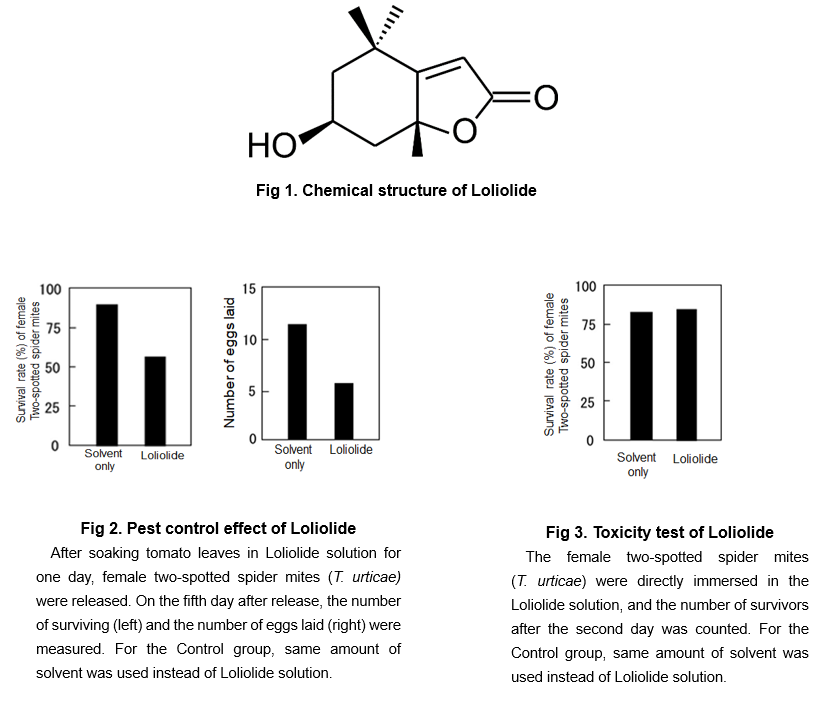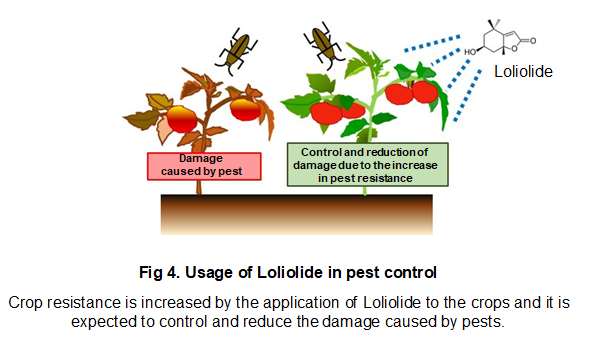The National Agriculture and Food Research Organization (NARO), has discovered that by the application of natural substance namely Loliolide to crops such as tomato, the damage caused by the important pests such as western flower thrips (Frankliniella occidentalis), two-spotted spider mite (Tetranychus urticae) could be suppressed. Loliolide doesn't has direct insecticidal effect, but it reduces the pest damage by means of enhancing the pest resistance in tomatoes etc. It is a promising material for pest control agents that utilizing the pest resistance of crops.
Overview
Institute of Agrobiological Sciences, NARO (NIAS), has found that a tobacco-derived natural substance called Loliolide was effective in controlling the important crop pests such as western flower thrips (Frankliniella occidentalis) and two-spotted spider mite (Tetranychus urticae).
Although insecticides are mainly used to control these pests, the continued use of single insecticides has led to the emergence of insecticide-resistant pests (drug-resistant pests). Hence development of new control techniques has been desired.
Loliolide reduces the pest damage by increasing plant pest resistance. When it is used as a control agent, it is expected that drug resistance does not occur easily as it doesn't cause any direct killing effect on pests.
In Japan, drugs for reducing pest damage (plant activators) by means of increasing the pest resistance possessed by plants have not been commercialized. In future, we aim to collaborate with private companies such as agrochemicals manufacturers to develop pest control agents that are resistant to drug resistance using Loliolide.
Publication
Mika Murata, Yusuke Nakai, Kei Kawazu, Masumi Ishizaka, Hideyuki Kajiwara, Hiroshi Abe, Kasumi Takeuchi, Yuki Ichinose, Ichiro Mitsuhara, Atsushi Mochizuki, Shigemi Seo. Loliolide, a carotenoid metabolite, is a potential endogenous inducer of herbivore resistance. Plant Physiology. April 2019, Vol. 179, pp. 1822-1833 DOI: https://doi.org/10.1104/pp.18.00837
For Inquiries
Contact: http://www.naro.go.jp/english/inquiry/index.html
Reference Information






